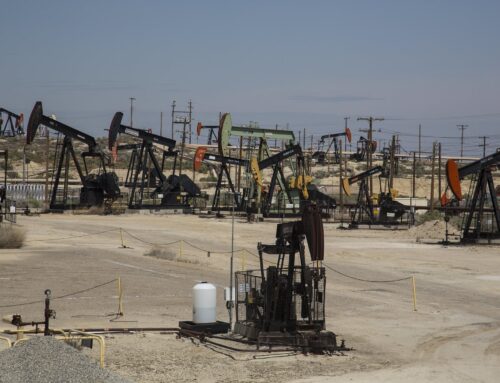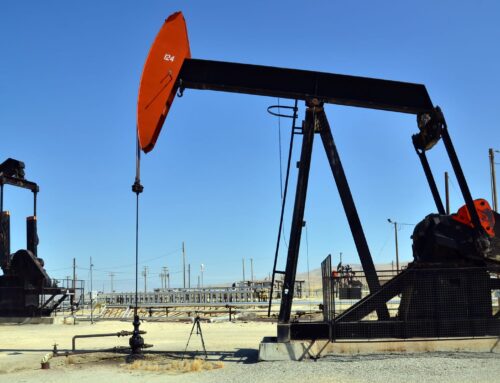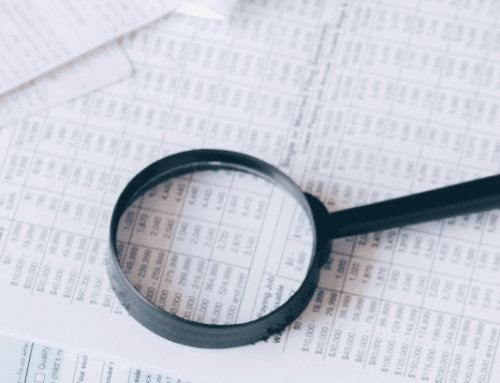WYOMING – The U.S. Department of the Interior released its report on federal oil and gas leasing and permitting on Nov. 26, bringing an end to the process that prompted a pause on federal lease sales back in January. Wyoming elected officials greeted the report with antipathy.
That report mentioned a need for reform in the process in order to benefit the American taxpayer. For example, the report said, the nation’s energy needs have developed to become more diverse while the oil and gas programs have remained largely unchanged. The report suggests those unchanged policies have direct and indirect impacts on federal land, water, wildlife and communities.
What the report suggests is raising the royalty rate from 12.5 percent – the same as established in the Mineral Leasing Act in 1920 – which the report suggests is out of step with modern times.
“Numerous public reports provide support for raising royalty rates for leasing on public lands, and nearly all state and private lands require that operators pay a royalty rate higher than 12.5 percent,” it read. “In June 2017, GAO reported that studies showed that raising federal royalty rates for onshore oil and gas could ‘decrease production on federal lands by a small amount or not at all but could increase overall revenue.’”
On Wyoming state lands, oil and gas royalty rates are set at 16.67 percent. The federal land rate of 12.5 percent is generally the lowest among state, private and federal jurisdictions.
A Taxpayers for Common Sense report last year stated the federal government as much as $12.4 billion in revenue from oil and gas drilling on federal lands from 2010 through 2019 because the federal royalty rate was too low. Those findings coincided with results seen in Texas and Colorado, where no significant effect on production from state lands after the state royalty rates were raised.
Wyoming elected officials blasted the report, releasing strongly worded statements and speaking passionately on Capitol Hill.
Gov. Mark Gordon said none of the options for reform offered by the report are smart or necessary for Wyoming.
“With our state’s oil and gas industry just showing signs of recovery, this is the worst time to needlessly increase expenses such as jacking up royalty rates or instituting higher bond requirements,” his statement read.
Sen. John Barrasso joined those sentiments in a statement he penned the same day the report was released. Barrasso disputed the findings of the studies citied in the report, saying an increase in royalty rates would directly lead to an increased burden on taxpayers.
“These higher costs will be passed on to consumers in the form of higher energy bills and prices at the pump,” he said. “Shutting down energy production on federal lands will not fix climate change.”
Figures provided by the Wyoming Oil and Gas Conservation Commission show the state’s gas production has steadily declined since its peak in 2009. Of course, the 2020 product fell off dramatically because of the Covid-19 pandemic. Sublette County has remained the top gas-producing county in Wyoming, by a large margin, during that time.
But production from Sublette County has dropped in that time. Fewer producers are drilling in the county as active rig counts continue to recover from the initial weeks of the pandemic when there were no active rigs in Wyoming.
Sublette County has also experienced some movements outside of direct production in the past year. Ultra Petroleum Energy purchased Pinedale Energy Partners and rebranded itself as PureWest. Jonah Energy, along with several other production companies, asked Sublette County commissioners for an exemption from Senate File 60 that would have required monthly ad valorem payments. Commissioners initially blocked that idea before learning the financial impacts, and then proceeded to grant those exemptions. Sublette County was involved in litigation, along with other counties in Wyoming, against Vanguard Operating for outstanding tax payments dating back years. A settlement was ultimately reached and the county received about 33 percent of what it was seeking.
Then there’s the instability in the foreign markets that have forced rates to rise on the public in Sublette County. A recent story in the Roundup explored the causes for the rate increases, which explored how circumstances overseas directly impacted local residents.
Gov. Gordon and Sen. Barrasso both spoke about the overseas implications of the Department of the Interior’s report.
“While we are asking our enemies to produce more oil, under less stringent regulations and drain our own national security reserves,” Gov. Gordon said in his statement, “further weakening our economy, we need to remember that the only result of the president’s actions will be driving more activity to foreign countries and to states with fewer federal lands and minerals.”
Barrasso issued a statement the same day the report was released, stating, “President Biden’s war on American energy is unrelenting.”
Wyoming’s senior Senator said the report was proof of this administration’s desire to shut down production on federal land and waters. He also said further regulations would lead production away from federal lands and possibly to foreign countries with lower environmental standards.
Barrasso has long been a critic of Democrats and President Joe Biden’s oil and gas policies. He recently went on Fox News Sunday and said these policies directly embolden Russia.
On Tuesday, Barrasso went further on his comments, saying from the Senate floor that the report was an admission failure by the Biden administration.
“If President Biden and his Department of the Interior get their way, prices will go up even higher. Inflation is here to stay under the Democrats,” Barrasso said. “The American people deserve better. They deserve real solutions to this energy crisis that this administration has created.”
Barrasso, along with other Republicans and Democrats, has introduced legislation into Congress regarding oil and gas production and leasing since Biden assumed the office in January. The Department of the Interior’s report concluded the federal oil and gas lease program, in its current form, fell short of serving the public in input, returns and opened low-potential lands without considering competing multiple-use opportunities.
“(The report) also encourages to act on pending legislation to provide fundamental reforms to the onshore and offshore oil and gas programs,” it said.
Barrasso responded by introducing more legislation, along with other Republican co-sponsors, to combat the Biden administration’s energy policies. Gordon said any potential modifications to the oil and gas leasing program could have come without the leasing moratorium.










